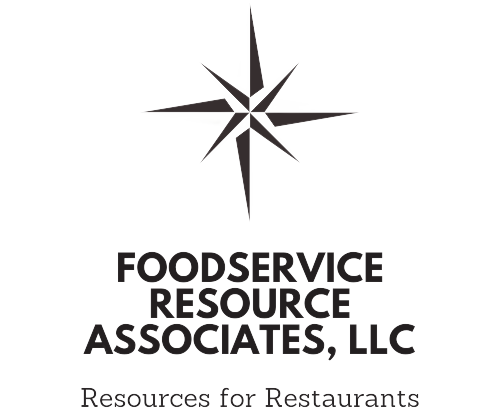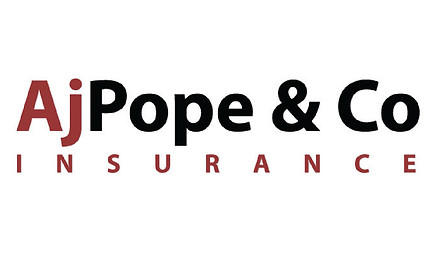When buying a restaurant,
there are several crucial factors to consider to ensure a successful purchase and operation. Here are the five most important things to know when buying a restaurant:
1. Financial Health of the Restaurant:
Examine the financial records of the restaurant, including monthly and yearly food and beverage sales, labor costs, food costs, and check averages. This will give you a clear picture of the business’s financial health and profitability.
Location and Market:
2. Consider the restaurant’s location and its proximity to potential customers.
Research the local market to understand the demand for the type of cuisine and service you plan to offer. A prime location can significantly impact your restaurant’s success.
3. Condition of the Restaurant:
Inspect the physical condition of the restaurant. Ensure that the kitchen equipment, dining area, and facilities are well-maintained and up to code. Any required renovations or repairs can add to your initial investment.
4. Licenses and Permits:
Check the restaurant’s compliance with health, safety, and food service regulations. Verify that all necessary licenses and permits are in place, and be prepared to navigate the legal requirements for operating a restaurant in your area.
5. Staff and Management:
Evaluate the existing staff, including their skills, experience, and work ethic. Consider whether you will retain the current team or need to hire new staff. The quality of service and the restaurant’s overall atmosphere are heavily influenced by the staff.
Additionally, it’s a good idea to consult with experts, such as business brokers, attorneys, and accountants, who can provide valuable guidance during the purchasing process.
Remember that buying a restaurant is a significant financial and emotional investment, so thorough due diligence is essential to minimize risks and increase your chances of success.
When selling a restaurant,
it’s essential to follow a strategic approach to maximize your return on investment and ensure a smooth transition. Here are five things to do when selling a restaurant:
1. Evaluate Your Financials:
Thoroughly assess the financial health of your restaurant. This includes reviewing your profit and loss statements, balance sheets, tax returns, and any outstanding debts. Accurate financial records are crucial for attracting serious buyers.
2. Prepare Your Restaurant for Sale:
Ensure your restaurant is in its best possible condition. This may involve making necessary repairs, upgrades, or cosmetic improvements to enhance its appeal. A well-maintained restaurant is more likely to attract buyers.
3. Set an Appropriate Selling Price:
Determine a fair and competitive selling price for your restaurant. Consider factors such as your financial performance, the value of assets, and the prevailing market conditions. Overpricing can deter potential buyers, while underpricing may lead to a financial loss.
4. Market Your Restaurant Effectively:
Create a comprehensive marketing plan to reach potential buyers. This may include advertising in relevant business listings, utilizing social media, and working with business brokers or real estate professionals with expertise in selling restaurants.
5. Negotiate and Close the Deal Carefully:
When potential buyers express interest, negotiate the terms of the sale carefully. This includes the selling price, payment structure, transition period, and any contingencies. Seek legal and financial advice to ensure that the sale contract is clear and legally binding.
Remember that selling a restaurant can be a complex process, and it’s beneficial to seek guidance from professionals who specialize in restaurant sales, such as business brokers or attorneys. I have seen people buy a property and then find out that they would need to install a $30,000.00 Grease Trap. You can avoid these stupid mistakes by working with a Commercial Real Estate Agent.
When leasing a restaurant,
it’s crucial to consider various factors to ensure that the space and terms of the lease align with your business goals. Here are five things to know when leasing a restaurant:
1. Set a Budget:
Establish a clear budget for leasing a restaurant space. This should include not only the monthly rent but also other expenses like utilities, insurance, and any common area maintenance fees. Knowing your financial limits is essential to avoid overextending your resources.
2. Research the Neighborhood:
Thoroughly research the neighborhood where the restaurant is located. Consider factors such as foot traffic, nearby competition, and the demographics of the area. Understanding the neighborhood will help you gauge the potential customer base.
3. Measure Your Space:
Accurately measure the interior space of the restaurant. This includes the kitchen, dining area, storage, and any additional areas you may require. Ensure that the layout and size meet the operational needs of your restaurant concept.
4. Assess the Potential of the Space:
Evaluate the potential of the leased space for your restaurant concept. Consider factors like the kitchen’s layout, the condition of the equipment, and any necessary renovations or improvements. Make sure the space aligns with your vision for the restaurant. Most states require a stamped set of architectural drawings before you start the permitting process...
5. Negotiate the Lease Agreement:
Carefully review and negotiate the terms of the lease agreement. Pay attention to details such as lease duration, renewal options, rent increases, and any responsibilities for repairs or maintenance. Seek legal advice if needed to ensure that the lease is fair and favorable to your business. IF YOU ARE NOT USING A COMMERCIAL REAL ESTATE BORKER, YOU ARE MAKING A BIG MISTAKE.
Negotiating Points
- Rent Terms: Discuss the potential for lower rent in exchange for a longer lease term. Present market research to support your proposed rent. Avoid CPI (consumer price index) increases as they are unpredictable and can result in significant rent increases over time.
- Concessions: Landlord concessions can take many forms. Inquire about landlord-provided tenant improvements or rent abatements, which landlords are often willing to offer for long-term leases.
- CAM Charges: Negotiate for more favorable terms on any common area maintenance (“CAM”) charges. Establish a first-year cap on CAM, and ongoing caps on CAM charges. Negotiate exclusions from CAM charges and definitely include audit rights.
- Exclusive Use Clauses: Consider requesting exclusivity in offering specific products or services. Ensure the lease protects against direct competition within the property.
- Assignment and Subletting: Discuss terms for assigning the lease to another party or subletting the space. Understand landlord approval requirements for assignments or subleases.
It’s also essential to understand local zoning laws, outdoor seating regulations, parking requirements, and signage restrictions to ensure compliance with all relevant regulations. I can’t tell you how many people I’ve seen who signed a lease and then found out they didn’t meet the distance requirements for an alcohol license. You have no idea how difficult it can be to get a Variance Exception from a City or County Municipality…
Before signing any lease, it’s advisable to consult with legal and financial professionals who specialize in restaurant leasing to protect your interests.
Sonia Mora
United Commercial Real Estate
770-549-5533
Sonia@ucarealestate.com
https://www.unitedcommercialadvisors.com/
Irving Jacobson
The Shumacher Group
404-550-6389
irving@shumacher.com
https://www.shumacher.com/
For a list of qualified vendors, see our Sponsors Page
For Tools and Resources, see our Opening Page.







